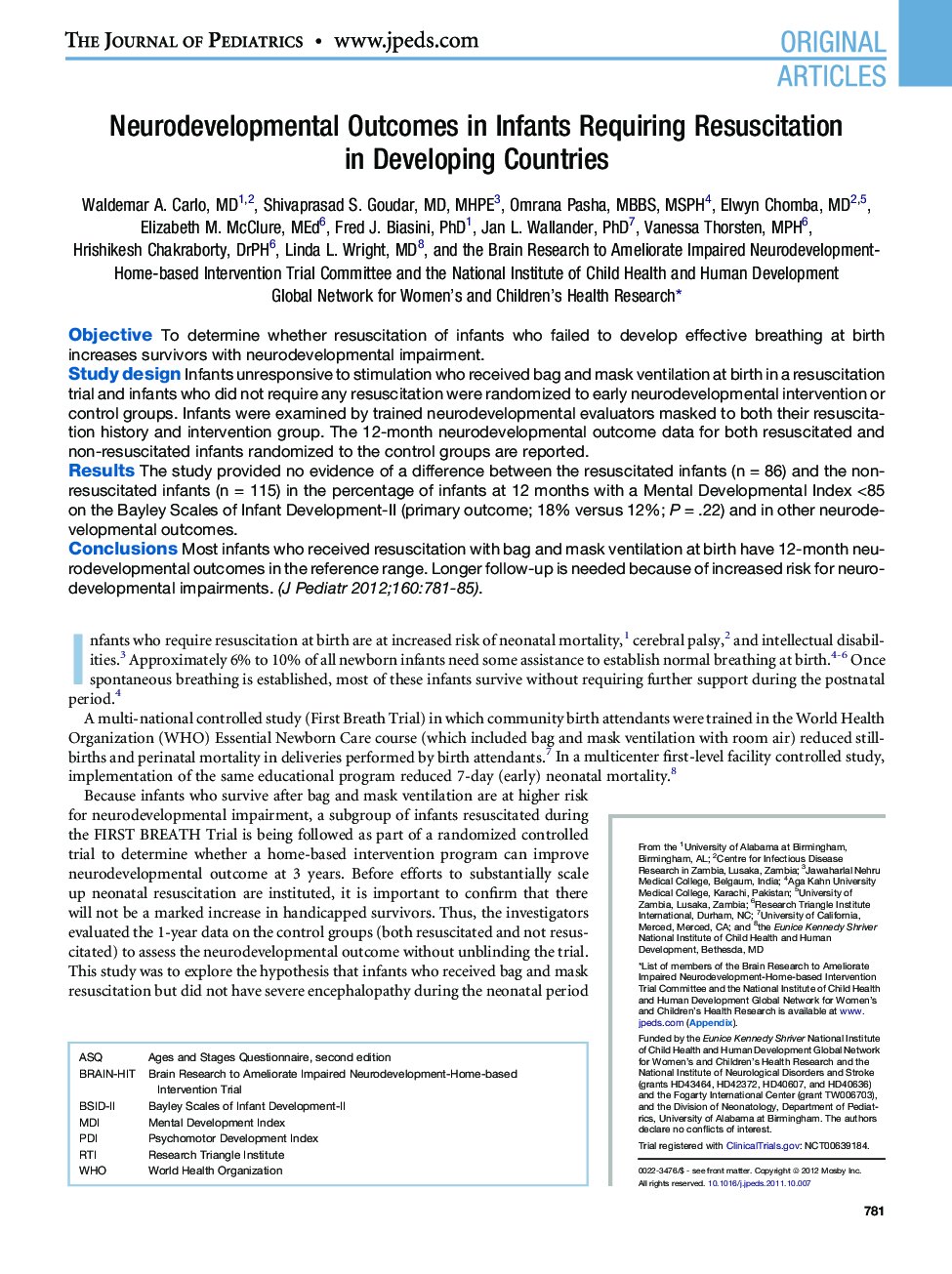| Article ID | Journal | Published Year | Pages | File Type |
|---|---|---|---|---|
| 6224505 | The Journal of Pediatrics | 2012 | 6 Pages |
ObjectiveTo determine whether resuscitation of infants who failed to develop effective breathing at birth increases survivors with neurodevelopmental impairment.Study designInfants unresponsive to stimulation who received bag and mask ventilation at birth in a resuscitation trial and infants who did not require any resuscitation were randomized to early neurodevelopmental intervention or control groups. Infants were examined by trained neurodevelopmental evaluators masked to both their resuscitation history and intervention group. The 12-month neurodevelopmental outcome data for both resuscitated and non-resuscitated infants randomized to the control groups are reported.ResultsThe study provided no evidence of a difference between the resuscitated infants (n = 86) and the non-resuscitated infants (n = 115) in the percentage of infants at 12 months with a Mental Developmental Index <85 on the Bayley Scales of Infant Development-II (primary outcome; 18% versus 12%; P = .22) and in other neurodevelopmental outcomes.ConclusionsMost infants who received resuscitation with bag and mask ventilation at birth have 12-month neurodevelopmental outcomes in the reference range. Longer follow-up is needed because of increased risk for neurodevelopmental impairments.
